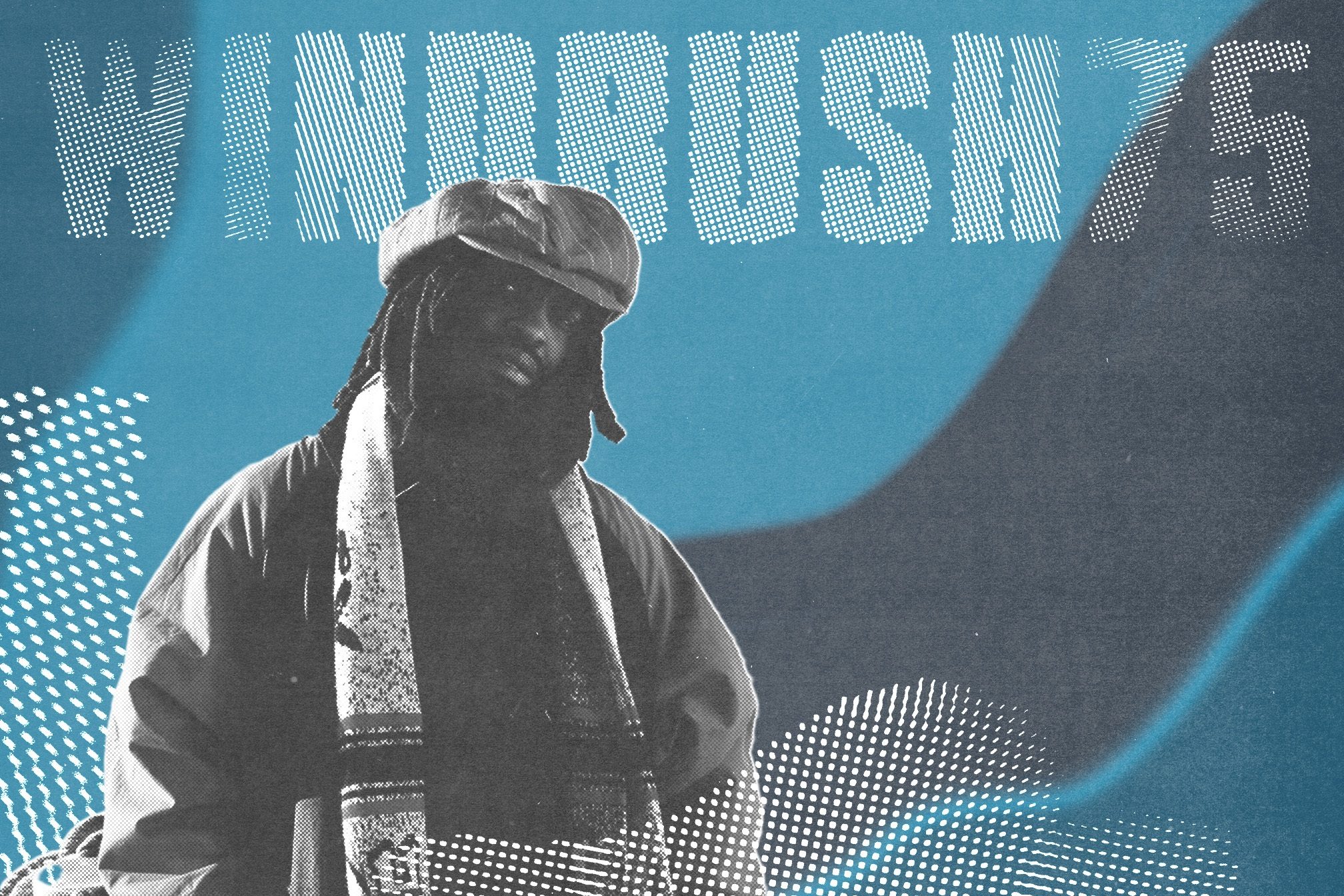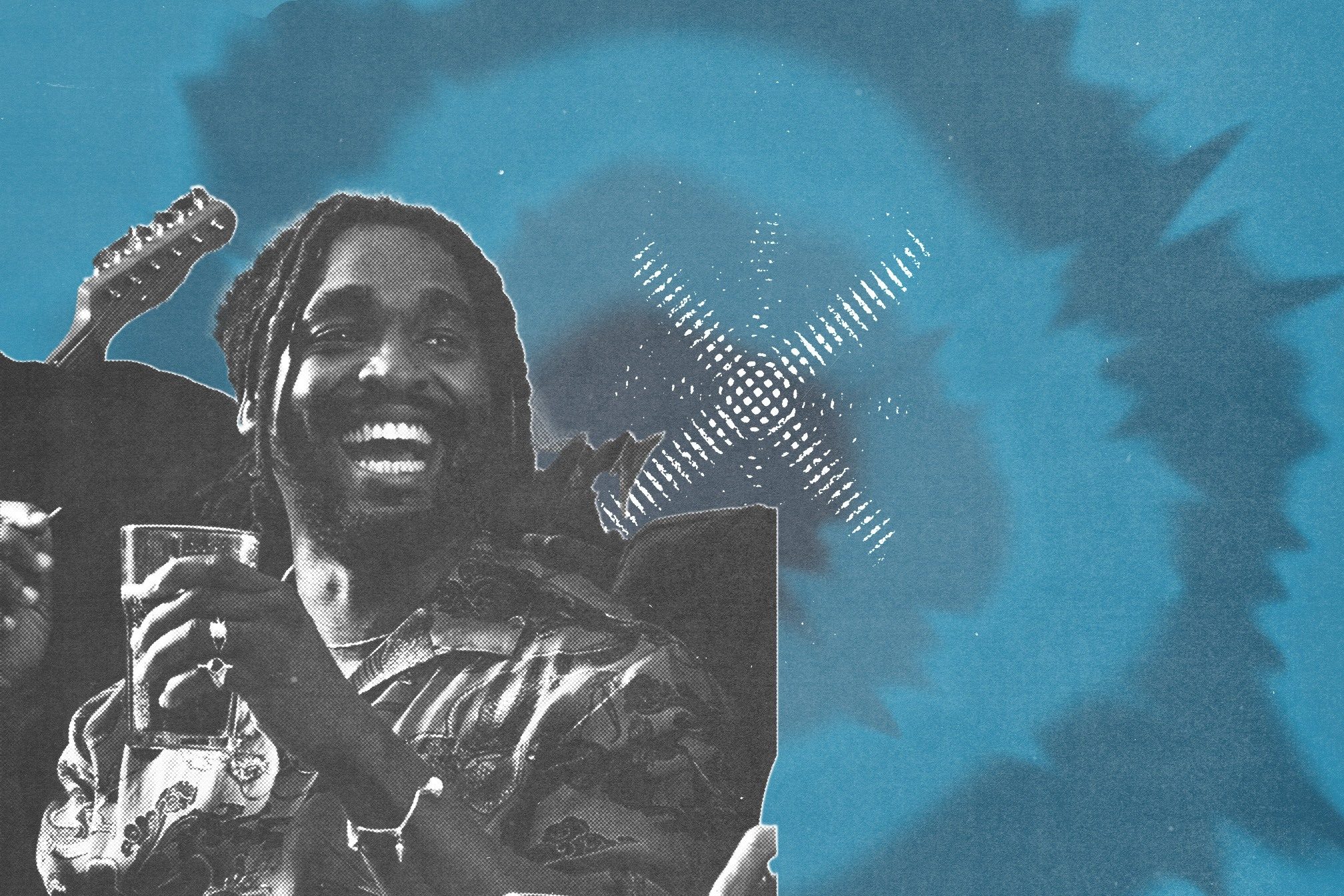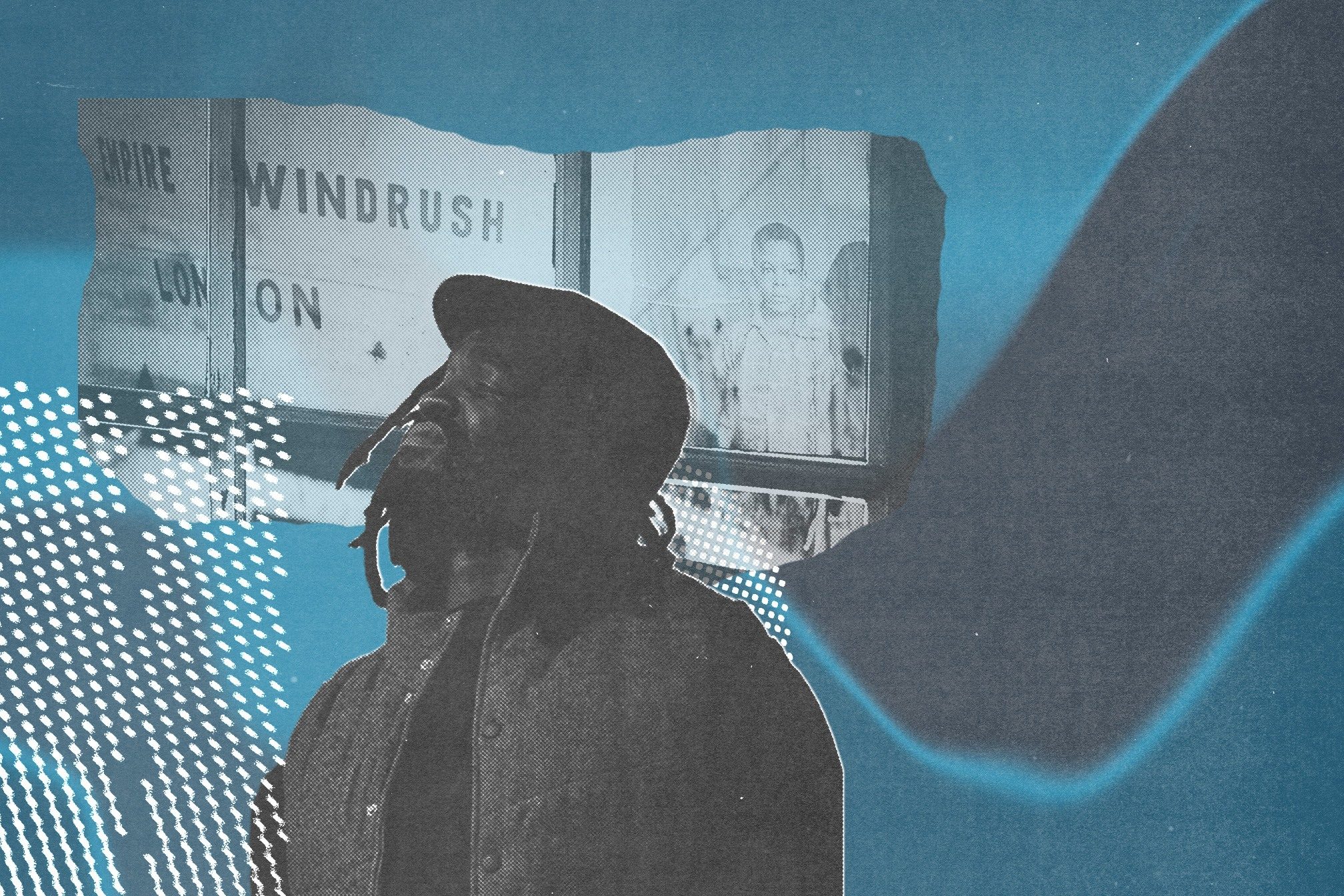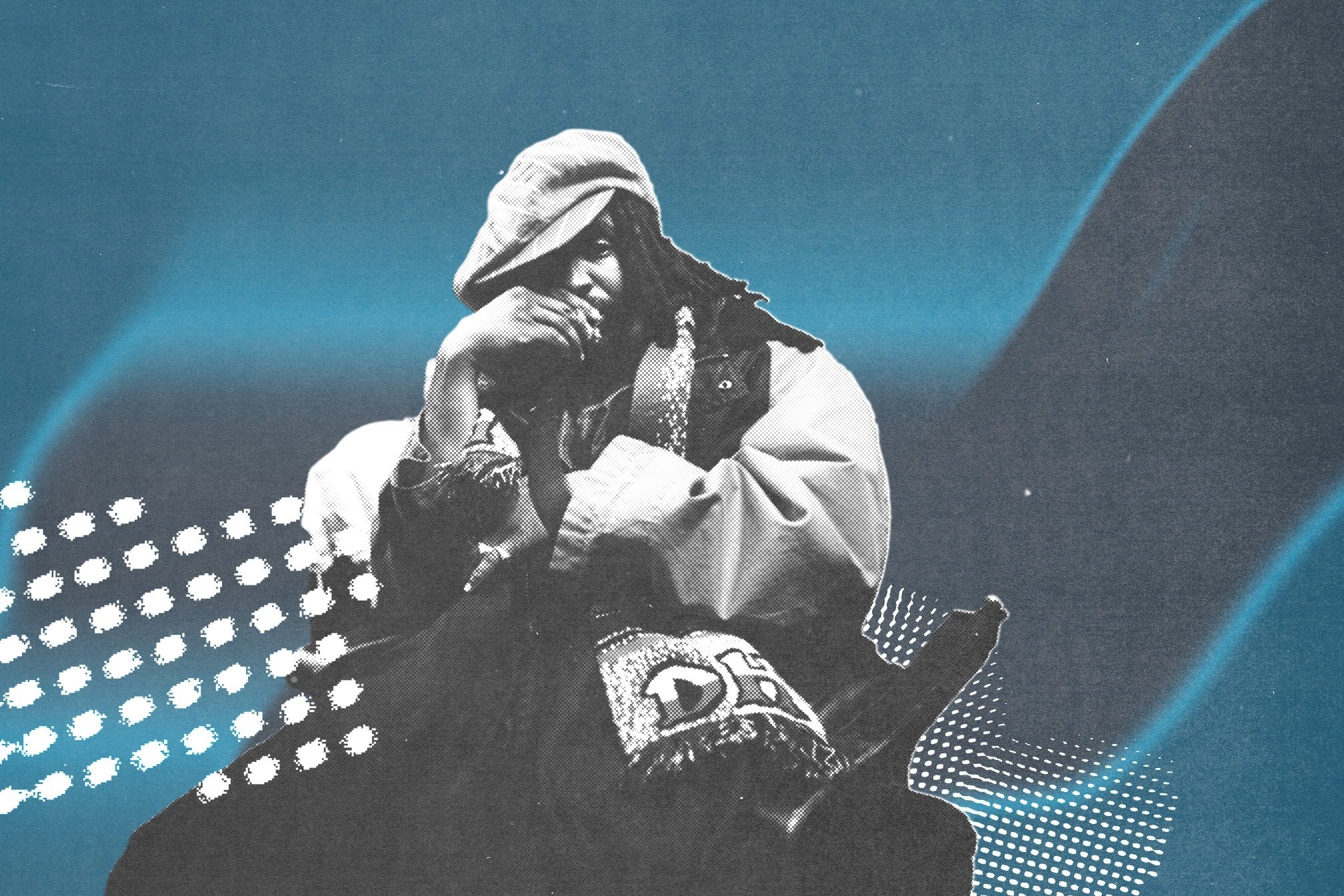 Features
Features
Rebellion music: Hak Baker is taking down the powers-that-be and having fun with it
Hak Baker is a champion of the people: honouring the legacy of Windrush and rewriting the narrative for his generation and for those to come
Mixmag is running an editorial series to mark the 75th anniversary of Windrush, find out more here
As a direct descendent of the Windrush generation, Hak Baker has an intrinsic understanding of the struggles of his predecessors while also embodying the modern-day struggles that still pervade throughout society in the UK. Hak grew up on the Isle Of Dogs in East London, a notorious British National Party stronghold. In fact, 30 years ago in 1993, the BNP won its first-ever seat in a council by-election in the Millwall Ward, which covers the Isle Of Dogs. For Black people living there, and surrounding areas, it was a potentially dangerous place to live, as it was across London and the rest of the UK. Hak has emerged as a voice of the people - the working class, the downtrodden - writing and performing “rebellion music” in the tradition of his Jamaican heritage. His song ‘Windrush Baby’ highlights this lineage, celebrating the position he now holds. “‘Windrush Baby’ is a celebration of the fact that we are now able to embrace our culture,” he explains, sitting outside a pub in Liverpool. When we talk, Hak is midway through a mini tour of the UK, playing several in-store gigs at record shops from Nottingham to Leeds, Dublin and more. “And to attack any atrocities and call it out for what it is without being cast aside or people saying, ‘Oh, well, come on, you should be grateful and all that bollocks’,” he adds.
Windrush heralded the arrival of the first post-war Caribbean immigrants to Britain. With them came a myriad cultural influences, which are still being felt now. Sadly, they were also met with hostility from the communities they lived in, and the authorities. Police harassment and brutality were rife, with little support or sympathy from the judicial system. “It would have been a great positive if they actually removed their pompousness when we came here,” Hak says. “It still exists now. I don’t know why people pretend racism, which is institutionalised and systematic, doesn't. It still exists now, but we're in a better position than our forefathers, grandmothers and ancestors.”

Hak’s music is rooted in the rebellious nature of the island that makes up part of his DNA. Songs like ‘PC Plod’, featured on his 2020 mixtape ‘Babylon’, pull no punches when it comes to his view of the authorities. For those who are unaware, the term Babylon originated in Rastafarian culture as a reference to governments and institutions that are seen as in opposition to the will of Jah (God). This thread of Rastafarianism, Jamaican culture and the lineage that stretches back beyond Windrush landing in the UK, runs through Hak’s music and ethos. He was made aware of the struggles his predecessors went through from a young age, his mother instilling in him resilience and tenacity that remain inherent to his identity today. “My grandmother passed away quite recently, and [before she died] we spoke about things that I would never have spoken to her about,” Hak confides. “She let me know how difficult things was when she was working. She was told she had to do labour that was fit for men.”
He then explains that his mother studied for nine years, picking up degrees in Sociology and Psychology. She went on to work two jobs to support her family, helping to lift them out of financial instability. But, when one of her employers found out she had another job, they sacked her and things became difficult for the family once again. Untold stories like this, injustices, unfair treatment, discrimination and contempt for people just trying to make their way in life are all too common. For Hak, part of his mission is to share these stories while also rewriting the narrative for his generation and for those to come. “I see myself as limitless, I can do whatever I want, and I do do whatever I want and I will continue doing whatever I want,” Hak says. “That comes from the tenacity that my mum gave me directly. My mum was a wild child. She was a Rasta - strong, solid with her beliefs and, as I get older, I feel the power she gave me and I feel that as her son. It fills me with energy and strength.”
Read this next: Why the radiogram is a sacred piece of music technology
Adding, “I’m lucky that I had such an amazing woman that made sure I knew who I was, where I come from and what I was capable of doing. Even though it was difficult back then, I’m sitting here as a man and I’m lucky.” Hak’s demeanour is laid back, with a simmering sense of purpose and duty. He doesn’t mince his words, and he gets serious when the occasion arises, but he’s a lad at heart and loves a drink and a laugh. This attitude comes through in his music, going way back to his ‘Misfits’ EP, which was released in 2019. From overt political commentary to having a night out with his pals, Hak’s music gives insight into his life, as a British-born Caribbean man growing up in East London (sunny East London).
The acknowledgement of his mum’s influence reveals the ways in which many of those from the Windrush generation, and those who came after, paved the way for today’s trailblazers to make an impact. A very big tip of the hat to the parents and grandparents who put their all into making a decent living, breaking down barriers to entry in so many professions and walks of life, and educating their offspring with the knowledge they needed in order to push forward. Things would be very different today if it wasn’t for those who battled through oppression to keep the spirit of their culture alive.

Hak’s music embraces diversity, and while the guitar features heavily in a lot of his songs, the term indie, which has been used by some publications to describe his music, does it a disservice. For Hak it’s rebellion music, echoing the feeling that has emanated from Jamaica for decades. During the slave trade, many of the enslaved Africans in Jamaica rebelled and resisted their captivity. Most famous of those who fought hard for their freedom were the maroons (moors), who escaped and fled to the island’s interior mountains, where slave owners found it difficult to recapture them. Reducing Hak’s music to one trite genre category is misleading as he shifts between folk and roots reggae influences (“the unsyncopated guitar strums,” he says), to drum’n’bass and modern electronic styles. All of which represents his own personal tastes and experiences. “Roots reggae was about rebellion and fighting the power, that’s what my music is all about,” he states, explaining that he’s making Rasta music in his own way. “What I do is difficult, I’m not following trends. I’m trying to write my own story. I know a lot of people would have taken a deal, given up, conformed… I don’t have to do that, ‘cos I know what it’s like to have nothing anyway”.
Read this next: Why Black ownership and infrastructure is needed to equalise the music industry
Recent release ‘Doolally’, a single from the album, depicts a house party with Hak using spoken word to describe events in his charismatic East London swagger. “I love a rave, love a party, love a house party, love it all,” he quips, chuckling. “‘Doolally’ is just an insight into having a good time for 20 years. Since I was 12 I’ve been ‘avin’ it”. Adding that he was involved in the “house epidemic in Central” and a funky house raver, hitting spots like the infamous Purple E3 in Mile End and Palace Pavilion in Clapton. “I went Raindance, Tunnels in South. I was out there, mate… with my mate Anton’s ID, getting in everywhere,” he adds.
Hak’s unique persona and musical style have led to increasing popularity. His message of taking down the powers-that-be, but having fun while you’re doing it, has resonated with a broad fanbase across the UK. He’s played the Royal Albert Hall, Glastonbury and sold out shows up and down the country, embarking on grassroots tours where he has performed at pubs and record shops. Ultimately, Hak is a man of the people, who, in his own words “came from nothing, so has nothing to lose”. He’s an independent artist, sticking to his guns and refusing to dilute his sound, because he believes so strongly in his message. In fact, he doesn’t just believe in his message, embodies it, day in, day out. There is no compromise, simply a desire to champion his people; those who, like him, have dealt with the inequality and injustice that pervades British society. “The working class keep this country afloat, but they’re beaten down daily by the system,” he says, before explaining that the only way things will change is by force. “It’s modern-day slavery. You think they’re going to release us without a revolution?”

‘Worlds End FM’ is a concept album, with Hak as the host on a pirate radio station at the end of the world. “It’s a message for the people to say, ‘I know what you’re going through, and I’m there with you… all the way. I know what you’re going through and I’m crying with you daily’,” he says, explaining that he wrote the album “when the world was on its knees coming out of COVID”, and he still feels the world is on its knees now. The threat to life on Earth is seemingly ever-present, which led to the album’s title. “We’re on the brink of imminent destruction,” he says sombrely. “Come together, man, it’s the only way we’re gonna survive”. The idea of uniting to survive a difficult environment has been with Hak since he was a kid. Finding the harsh environment of working class life on the Isle Of Dogs brought him and his mates together regardless of ethnicity. “Me and my mates came together on a working class level. We were all at the bottom of the pot together,” he reveals. Many of those childhood friends remain a core part of his inner circle, supporting him at his gigs and maintaining their tight bond through thick and thin.
As a champion of the underdog, Hak has come through and demonstrated that it’s possible to break the mould, to speak your truth and to be uniquely unorthodox, and still achieve success. ‘Worlds End FM’ landed at No.11 in the album charts the week it was released. British Caribbean history may have been indelibly tainted by the Windrush story, and all of the darkness of the slavery era, but individuals like Hak Baker are writing a new narrative that tells their story through a very personal lens, while also paying homage to their lineage. Hak is part of a generation that are carving out a future that represents the diversity of the Caribbean community, cultivating a progressive template for British culture to evolve from. “Working class people are the fortitude of the country. We’re the toughest, we’re the strongest, we’re the most resilient,” he states. “And when you add racial trauma, Windrush trauma on to that… we’re unbreakable”.
Marcus Barnes is a freelance writer, follow him on Twitter


